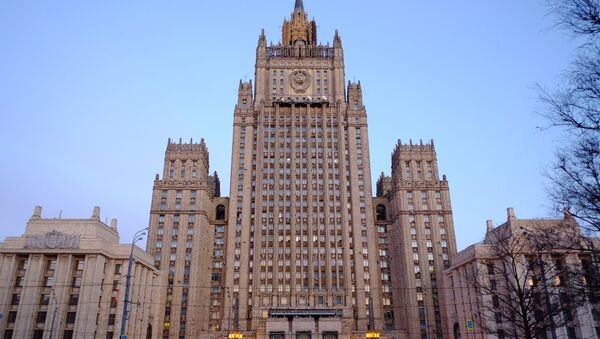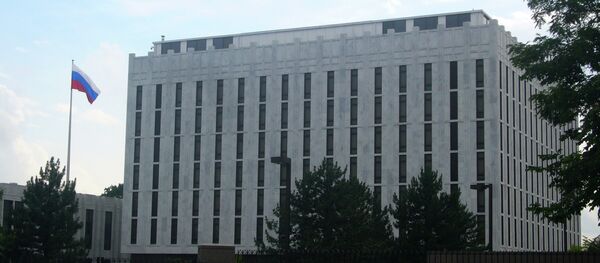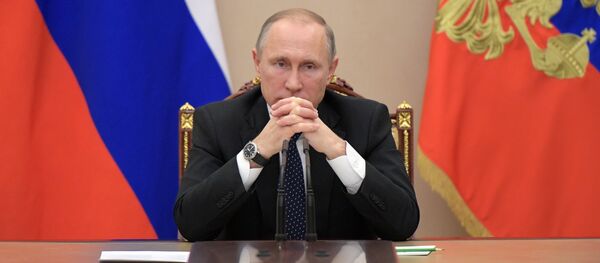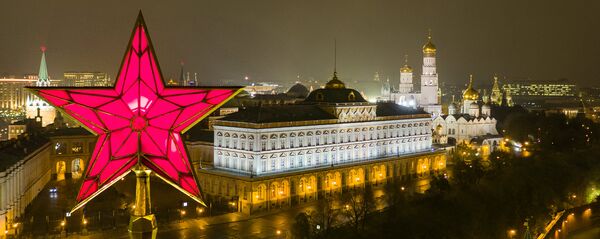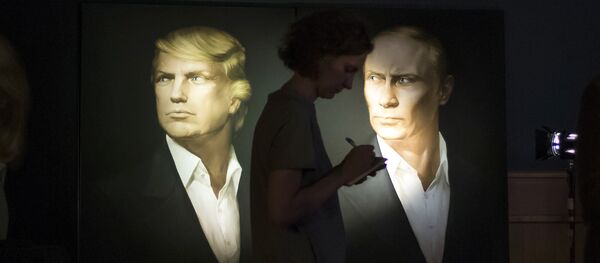MOSCOW (Sputnik) — The expulsion of diplomats, envisaged by the Vienna Convention on Diplomatic Relations, is an extreme measure and is usually associated with espionage, though it could also be symbolic.
Diplomatic personnel are protected from criminal, civil and administrative liability, with exception of some particular cases set in the Convention, have diplomatic immunity. While the diplomats are obliged to obey the laws of the host country, they could not be arrested in case of committing an offense.
The persona non grata status, provided for incompatibility of activities with diplomatic status and leading to automatic expulsion from the country, is the only mechanism to protect the host state from foreign diplomats.
On July 13, 2015, Ukraine’s Foreign Ministry informed of declaring persona non grata the acting consul general of Russia in Odessa. The Russian diplomat left the country, while the Russian Foreign Ministry said that the move was aimed at rising tension in bilateral relations.
In October 2014, a Polish army colonel was arrested in Warsaw on the suspicion of espionage in favor of Russia, followed by the expulsion of several Russian diplomats from Poland. On November 17, Russia took the same measures regarding Polish diplomats.
On April 8, 2014, Canadian media reported that the authorities declared a Russian diplomat in Ottawa persona non grata, giving him two weeks to leave Canada. The Canadian Foreign Ministry gave no explanation of the reasons behind such a decision, though it was taken amid the deterioration in relations between Ottawa and Moscow over events in Ukraine. On April 22, 2014, Moscow announced the expulsion of the first secretary of the Canadian Embassy from Russia in 14 days.
In January 2012, the Canadian media reported that four employees of the Russian Embassy in Ottawa were sent out of the country after the arrest of Canadian naval officer Jeffrey Paul Delisle, suspected of espionage in favor of Russia. The Russian Foreign Ministry denied the reports, saying that Russian diplomats left the country in 2011 when their mission ended.
On February 1, 2011, the government of Ireland announced an upcoming expulsion of the Russian diplomat due to the reports about Russian agents forging and using false passports.
In mid-December 2010, Russia and the United Kingdom exchanged mutual expulsion of diplomat. London accused Russian intelligence services of activities against British interests and called for diplomat’s expulsion. Moscow in its turn demanded to recall a British diplomat. The request was satisfied, though the UK authorities said there were no grounds for such actions.
In August 2010, the first secretary of the Russian Embassy in Bucharest Anatoly Akopov was declared by the Romanian authorities persona non grata as a response to Moscow actions against the Romanian diplomat Gabriel Grecu, accused of working for NATO and trying to obtain secret information of a military nature from a Russian citizen. According to FSB public relations center, the detained diplomat had espionage equipment, proving his "hostile activity against the Russian Federation."
In late July, 2009, Kiev announced the expulsion of two Russian diplomats – embassy’s adviser Vladimir Lysenko and Consul General in Odessa Alexander Grachev. Moscow suggested Ukraine’s Consul General in Saint Petersburg Natalia Prokopovich and head of the political section of Embassy of Ukraine in Moscow Igor Berezkin to accomplish their missions ahead of schedule. Later Kiev and Moscow suspended decisions to expel Grachev and Prokopovich, while Berezkin left Moscow, as it was reported on August 10.
On April 2, 2009, Latvian TV5 channel reported that Russian diplomat Alexander Khapilov, earlier accused of plotting murder of Georgian President Mikheil Saakashvili, was expelled from Latvia. Press attache of the Russian Embassy in Latvia Sergei Abramkin confirmed that Khapilov left the country, stressing that it was due to another job but not expulsion.
In September 2008, a Finnish diplomat was expelled from Moscow in response to the expulsion of Russian diplomat by the Finnish authorities in spring. According to the press service of Finland’s Foreign Ministry, the expelled Russian diplomat was involved in bribery scandal.
On November 7, 2007, the Georgian Foreign Ministry sent a note of protest to the Embassy of Russia, declaring three representatives of the Russian diplomatic mission, namely Ambassador Ivan Volynkin, adviser Petr Solomatin and third secretary Alexander Kurenkov, persona non grata. Diplomats were expelled on the basis of the data received by the Ministry of Internal Affairs of Georgia, via discreet surveillance and tapping of their phone conversations with representatives of the Georgian opposition. The Georgian leadership made a conclusion that some of the opposition leaders coordinated their actions with the representatives of the Russian Embassy on plotting a coup. The following day, three employees of the Georgian Embassy in Moscow were sent out of the country.
In July 2007, four Russian diplomats were expelled from the United Kingdom in response to Moscow refusal to extradite businessman Andrei Lugovoi, accused by the UK authorities of implication in murder of former FSB officer Alexander Litvinenko. Russia in its turn expelled four British diplomats.
